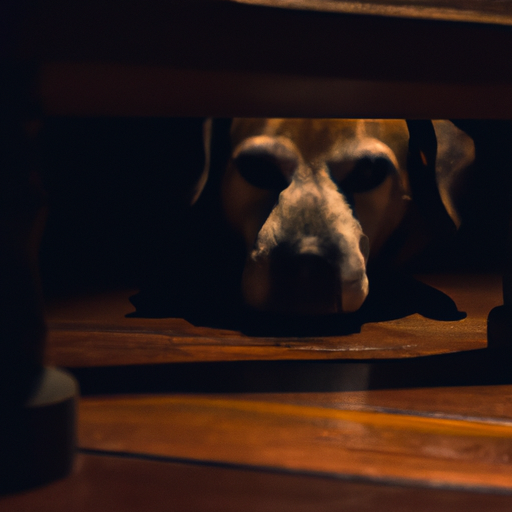“`markdown
Do Dogs Hide When They Are Dying?
Understanding Your Dog’s Behavior
As a caregiver, you’re the one who knows your dog the best. You’ve likely noticed subtle changes in their behavior over time. Just like humans, dogs have their own unique ways of communicating their feelings, especially when they’re not feeling well. When dogs are nearing the end of their lives, they often display behavior that might seem peculiar to us. One of these behaviors is hiding.
The Reason Behind The Hide
Why do dogs hide when they are dying? You might wonder. Dogs are instinctively pack animals, and in the wild, a weak or dying member of the pack would often hide to avoid attracting predators. This instinct can still be seen in our domesticated friends. They might retreat to a quiet corner or under furniture during their final days.
- It’s a way to seek comfort and safety.
- It’s an instinct to protect the pack (in this case, your family) from predators.
While it’s heartbreaking to think about, understanding your dog’s instinctual behavior can help you provide the best possible care during their final days.
How To Respond To Your Dog’s Behavior
When you notice your dog starting to hide more frequently, it’s important to respond with empathy and patience.
- Do not force them out of their hiding place.
- Keep their environment calm and quiet.
- Provide them with comfortable bedding.
- Make sure they have easy access to food and water.
Remember, your dog is relying on you for comfort and care during this difficult time.
Recognizing Other Signs of a Dying Dog
While hiding is a common behavior seen in dying dogs, there are also other signs to look out for. These include:
- Loss of appetite
- Changes in breathing
- Difficulty standing or walking
- Incontinence
- General disinterest in things they once enjoyed
| Signs | Description |
|---|---|
| Loss of appetite | Not eating or showing interest in food |
| Breathing changes | Labored or rapid breathing |
| Mobility issues | Difficulty in standing or walking |
| Incontinence | Loss of control over bladder or bowel |
| Disinterest | No interest in activities they once enjoyed |
It’s important to consult with a vet if you notice these signs in your dog.
Seeking Professional Help
If you suspect your dog is nearing the end of their life, it’s crucial to seek professional help. A vet can provide a comprehensive health assessment and guide you through options for palliative care or euthanasia, if necessary.
FAQ
Q: Do all dogs hide when they are dying?
A: Not necessarily. Every dog is unique and may react differently to the end-of-life process.
Q: What should I do if my dog is hiding and refusing to eat?
A: Consult with a vet immediately. They can guide you on the best course of action.
Q: Can a dog sense their own death?
A: While it’s hard to say for sure, many pet experts believe that dogs have a certain sense of their own mortality.
Q: How can I comfort my dying dog?
A: Keep their environment calm and quiet, provide comfortable bedding, and ensure easy access to food and water.
“`



